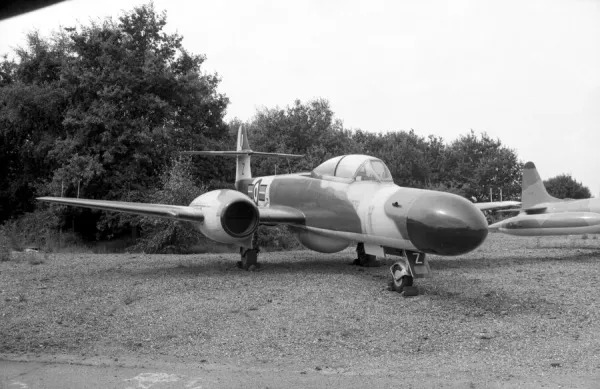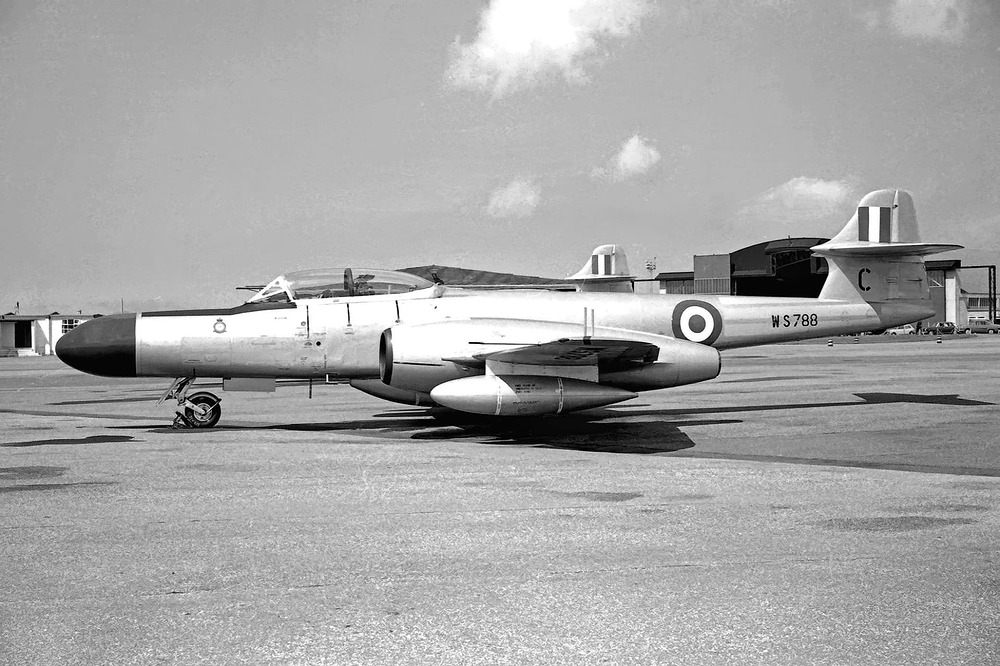- Yes
- No
Armstrong Whitworth Meteor NF.14

Design and service history:
With the success of the previous NF.12, there was little surprise that Armstrong Whitworth would develop a further design. Taking the already successful NF.12 design and further extending the nose another 17 inches (430 mm), allowing the addition of the AN/APQ-43 radar system that would be later used on early variants of the Javelin. This new radar array increased the total length of the NF.14 to 51 ft 4 in (15.65 m), necessitating the addition of yawn dampers to control the further exaggerated snaking, that had occurred with the NF.12. The framed canopy was also replaced by a new bubble canopy, greatly increasing the field of vision for the pilot and navigator. A number of minor changes were also applied, and the design retained the more powerful Derwent 9 engines, from the NF.12, which gave the airframe 16.9 kN of thrust per engine. With the changes in place, the NF.14 enjoyed its first flight on the 23rd of october 1953, before it entered service in February of the next year, starting with No.25 squadron. 100 aircraft were ordered, though its service would be short-lived, as it began to be replaced as early as 1956 in some squadrons for its successor the Gloster Javelin. Overseas, though they soldiered on, with the last NF.14 squadron, that being No.60 out of Singapore, being withdrawn from service in 1961. In total, Armstrong Whitworth would make a total of 547 night fighter Meteors across all variants, with the NF.14 being considered the definitive derivative, with several examples surviving today in private collections and museums.
Vehicle specification:
Engine: Two Rolls-Royce Derwent 9 engines
Thrust: 16.9 kN (1,725 kgp / 3,800 lbf)
Span: 43ft
Length: 51 feet 4 inches
Gross Weight: 21,200 pounds
Maximum level speed at sea level: 587mph
Maximum level speed at 30,000ft: 547mph
Rate of climb at sea level: 4,800ft
Ceiling: 40,000ft
Cruise Range at normal load: 950 miles
Radar: AN/APQ-43
Armament: 4 x Hispano Mk. V 20mm cannons in wings
Additional historical images:


Sources:
- NF Meteors: The RAF’s First Jet Night-Fighters (Good article covering the development of the night fighter meteors as well as their service)
- Gloster Meteor - Wikipedia (Wiki page for the Meteor family)
- Gloster Meteor (Additional history source)

